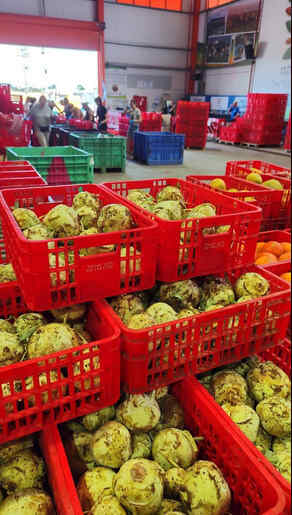Leket Israel responds to crisis
Despite the ceasefire, the need remains critical — and Leket doesn’t stop
Though missiles have stopped, hunger has not—Israel’s leading food rescue organization expands emergency efforts to reach displaced, vulnerable populations still reeling from war’s toll, under the banner ‘Leket Doesn’t Stop’
As the war with Iran gives way to a tenuous ceasefire, Israel is entering a new phase of uncertainty. While the sirens have quieted, the long-term repercussions of the conflict continue to ripple across the country. For hundreds of thousands of Israelis, the ceasefire does not bring relief from food insecurity or economic hardship. The emergency may look different now, but the need is no less urgent.
In response, Leket Israel, the country’s largest food rescue organization, is continuing full-force operations to ensure that vulnerable populations are not left behind.
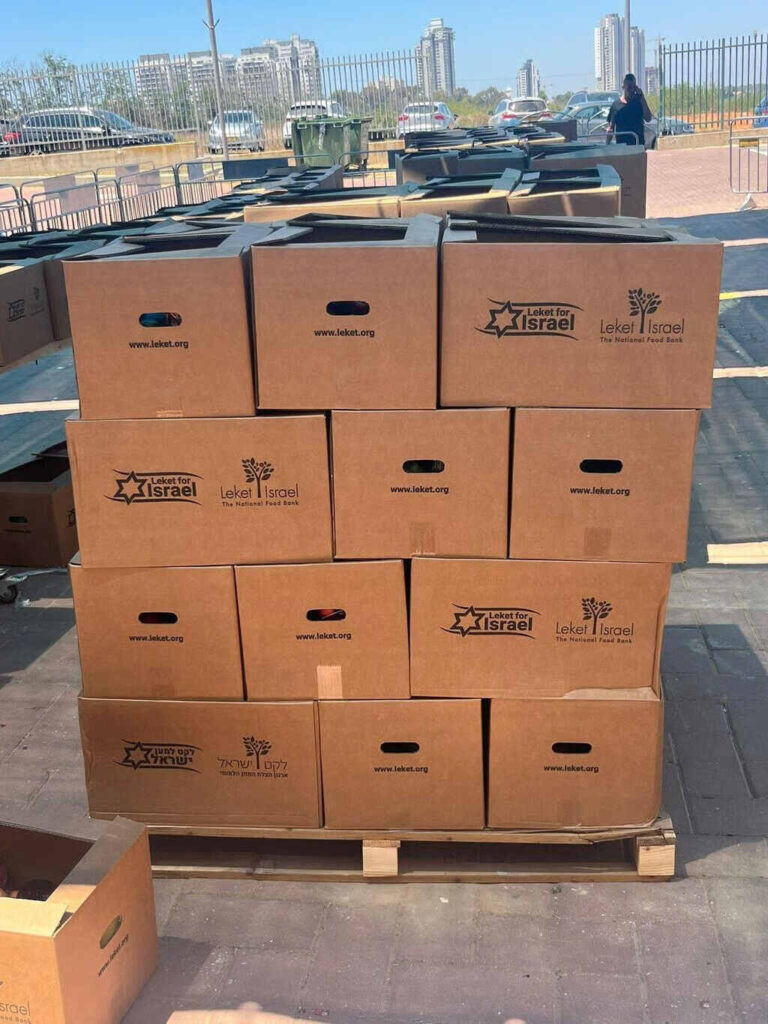
Throughout the crisis, Leket Israel has demonstrated the resilience and adaptability that have become its hallmark in times of national emergency. When regular food rescue routes were shut down due to missile fire and travel restrictions, Leket pivoted immediately, reallocating NIS 4 million to purchase fresh produce and cooked meals to fill the gap.
Now, as the situation shifts, the organization is entering a new chapter of its emergency response, focusing on both food rescue and direct procurement, driven by one unwavering message: Leket Doesn’t Stop.
The ceasefire may have halted the missiles, but it has not repaired the deep damage left in their wake. Thousands of families remain displaced from their homes, especially in Israel’s northern and southern communities. Many others are still reeling from job loss, business closures or emotional trauma that has upended their ability to care for themselves and their families. Vulnerable groups such as Holocaust survivors, elderly individuals living alone and people with disabilities are facing mounting challenges as government and municipal services continue to struggle under pressure.
Leket Israel, as it has in every crisis over the past two decades, remains a steady and reliable presence. Its food rescue network, which spans over 300 nonprofit partners and municipalities, is being leveraged to reach households in need with speed and sensitivity. Teams are actively coordinating with local authorities to map food insecurity in real time and deliver assistance where it’s needed most.
Despite the ceasefire, there is no scaling back. The organization is operating under the same level of urgency it maintained during the peak of the conflict—because for those living with food insecurity, nothing has changed.
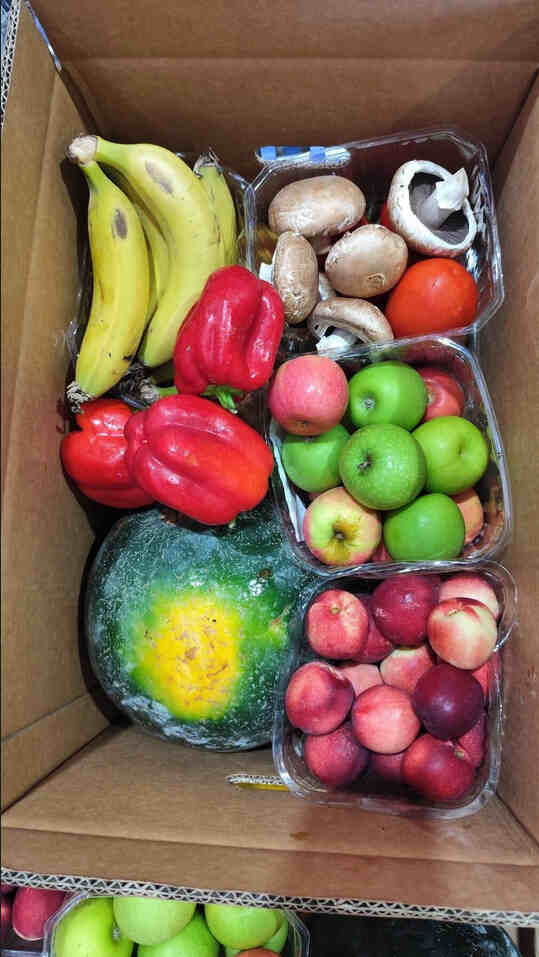
One of the clearest examples of Leket’s adaptability is the transformation of its Leket Express program. Previously structured as a mobile produce market, where people could select fruits and vegetables at pop-up stations, the model was swiftly adjusted for wartime.
In compliance with Home Front Command guidelines, Leket now delivers pre-packed boxes of fresh produce directly to recipients. This not only eliminates the need for large public gatherings but ensures speed, safety and dignity.
Another innovation developed in response to the crisis has been the setup of produce stands inside hotels housing evacuees. These mobile fruit and vegetable stands provide displaced families with access to fresh, healthy produce, right where they are temporarily living. For many evacuees, unable to cook or shop freely, this direct access to fresh food has been a vital lifeline. It not only improves nutrition but also brings a sense of normalcy and care during a deeply unsettled time.
This work continues thanks in large part to the organization’s centralized Logistics Center, which has remained operational throughout the crisis. From this hub, staff and volunteers coordinate the packing, sorting and dispatch of food nationwide. In addition to rescued produce and hot meals, Leket is also distributing purchased food to address shortages in the supply chain caused by disruptions in the agriculture and hospitality sectors.
Leket’s CEO, Gidi Kroch, has made clear that the organization’s commitment does not waver with the headlines.
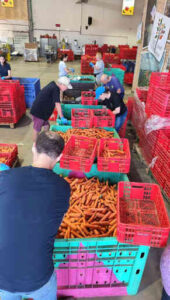
“Amid all this uncertainty, there is one thing we at Leket Israel can guarantee: our operations will continue—uninterrupted. Under any conditions, in any way—our Logistics Center, our trucks, our offices and our work in the field—Leket Israel does not stop.
“Despite the nationwide shutdown affecting our access to surplus hot meals and produce, we are turning to creative solutions—purchasing meals and fresh produce—to ensure those who depend on us are not left with nothing. Especially during these times, we are committed to being here for those in need,” he says.
This is more than a message; it’s the campaign’s guiding principle. Under the slogan “Leket Doesn’t Stop,” the organization is inviting the public to join in its life-saving efforts. The campaign emphasizes that even after the immediate threat subsides, the need continues and Leket’s work is only intensifying. It is not a question of stepping back, but of stepping up.
For those who have been severely impacted, Leket’s food packages are not only a nutritional lifeline but a message of care and solidarity. Each box represents a coordinated national effort: rescued food, donated resources, logistical coordination and generous public support coming together in a single, tangible act of compassion.
Even as Leket resumes some of its regular food rescue routes—collecting cooked meals from corporate cafeterias and agricultural produce from partner farms—the organization continues to rely heavily on purchased food to meet demand. Supply chains remain fragile, and not all farms or kitchens have resumed normal operations.
The combination of food rescue and food procurement allows Leket to remain agile and responsive in a still-volatile environment.
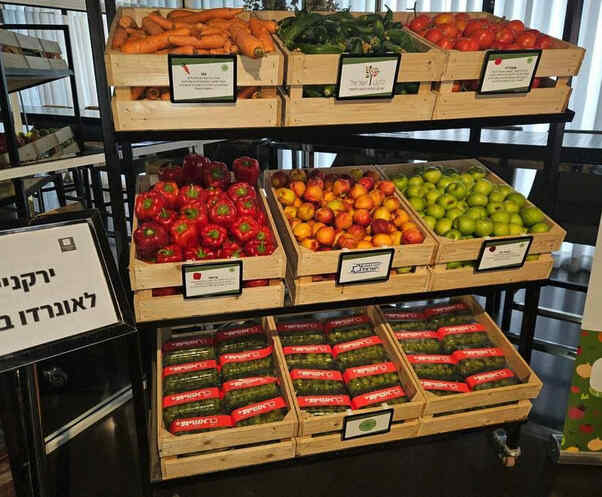
What’s clear is that the emergency has not ended. Rather, it has entered a quieter, more invisible phase—one where the suffering continues out of sight, and where the risk of neglect is greatest. This is precisely the moment when organizations like Leket must remain most active. The visible crisis may have passed, but for thousands of Israeli families, the struggle for food security is just beginning.
Public support is therefore more crucial than ever. As part of the “Leket Doesn’t Stop” campaign, the organization is calling on donors in Israel and around the world to take action.
This campaign is not about charity in the abstract; it is about the impact you can measure in meals, in boxes, and in lives sustained through the weeks ahead. Every contribution directly supports Leket’s continued ability to purchase, pack and deliver nutritious food across the country. It is a call to stand with Israel not only in times of war, but in the quieter battles that follow.
Leket Israel’s role in Israeli society is clear: to rescue food, reduce waste and restore dignity through nourishment. In 2024 alone, prior to the war, Leket rescued 2 million hot meals and 31,200 metric tons of agricultural produce—feeding over 415,000 people each week. That work continues today at full pace, despite the ceasefire, despite the obstacles and despite the exhaustion that so often follows national trauma.
